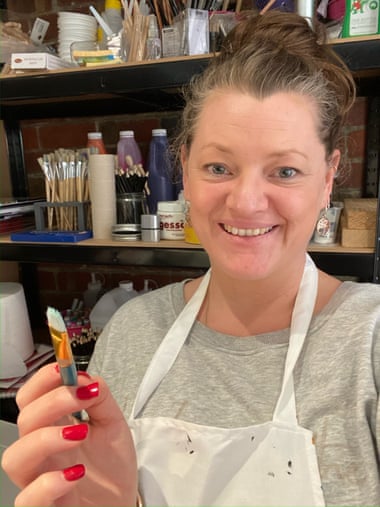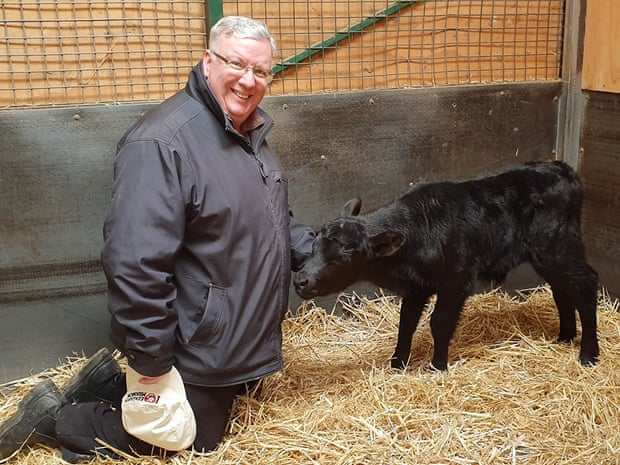
When we feel lonely, our first instinct is often to withdraw. “There tends to be shame around loneliness, so we tend to hide and avoid,” says Dr Alison Mahoney, a psychologist at Sydney’s St Vincent’s hospital. “Which only perpetuates loneliness … you disconnect further.
“There’s a myth that there’s something inherently weak with feeling lonely, but in fact, it’s universal.”
Loneliness arises when the quantity and quality of social relationships fall short of our needs; you can feel lonely when you’re not alone – but you can also be alone but not lonely. Ending Loneliness Australia, an organisational network aimed at fostering social connections, estimates one in four Australian adults is lonely.
“It’s not a weakness at all,” Mahoney says. “We get hungry, we need food. We need connection and loneliness tells us that.”
While arranging a quality catch-up on short notice isn’t always possible, it is not the only solution when feelings of loneliness arise.
Getting into a flow
Melburnian Sharon Westin separated from her husband during the pandemic. Now her teenage sons live with her every second fortnight. On the weeks without her children, “I often feel lonely,” she says.
“I can go days without speaking to anyone, with most of my daily work done by email. Now I’m single, whereas most friends are in partnerships or have families to run. I feel a little bit on the outer in that respect as well.”
The graphic designer finds her art practice is a balm in those moments. “Painting gets you into a state of flow, like meditation,” Westin says. “The act itself relieves any loneliness I may be feeling.”
Studies conducted during the pandemic with international students and retirement home residents in Taiwan found that activities which allow people to experience a sense of mastery and autonomy – ie flow – are associated with decreased feelings of loneliness. In a state of flow, people become so absorbed in an activity that they lose track of time. A flow state requires a task that is ideally just challenging enough, and provides clear goals and feedback.
In addition to offering short-term relief, finding solo activities you love can serve a deeper purpose. “Reflective time alone – exploring hobbies, your passions, your values – can help you get in touch with yourself,” Mahoney says. “When you know who you are, it’s easier to connect with people in a genuine way.”
Keeping nature’s company
Adrian Allen, psychologist at Healthy Mind Clinic in Sydney, says activities like walking and hiking are known to have mental health benefits, and may help shift “attention away from internal feelings and thoughts about being lonely”.
A 2021 study in Nature found people are more likely to feel lonely in dense, crowded areas, but a connection with the natural environment can help those feelings subside.
This is something Hayley Iluka can relate to. Iluka, a teacher, was once an avid surfer but stopped in her 40s. Multiple battles with cancer and other traumatic experiences earlier in life had left her with post-traumatic stress disorder, depression and anxiety. Every time she faced the water, “my PTSD was telling me, everything is going to kill you”.
Sign up to receive Guardian Australia’s weekend culture and lifestyle email
Although Iluka had a supportive family,she also grappled with paralysing thoughts in social situations. “I’d think, ‘you’re a waste of space, no one wants to sit with you’. I really isolated myself.”
As she entered her 50s, she decided to get back on her board, initially through attending standup paddle boarding lessons alone. Even when her first lessons triggered panic attacks, she persisted.
“The beach has always had good feelings for me,” she says. From standup paddle boarding, she progressed back to surfing, and the Waves of Wellness program, a mental health charity that offers “surf therapy” – a combination of surfing and group therapy. She started attending sessions, and it was here that she found her “tribe”; a group of fellow surfers she now socialises with regularly.
“You’re just in the moment, that’s the beautiful thing about surfing,” Iluka says. “You actually can’t think about anything else. You’re watching the ocean, the waves. You can’t be stuck in that cycle of negative self-talk because you’ve got to watch what’s coming.”
Making meaning
When Graham Wynn, 61, separated from his wife of 20 years, he found himself increasingly socially isolated. His family were based in the UK, but he lived in Australia.
“Twenty years we were together and when that ends, you start to think, ‘Was it me? Will somebody else want me? Am I good enough?’”
At first, Wynn found distraction through things like crossword puzzles and reading. But he felt a need to give back.

“I’m really cautious about who and what I donate to,” he says. He spent a lot of time researching organisations, and found that animal shelters would often hold fundraisers when an animal in their care needed veterinary surgery. Spending time online seeking out and contributing to those causes became almost a hobby for him. It felt good, “doing something meaningful like this, without even going anywhere,” he says. “It helped a great deal during that loneliness period.”
This pastime lead him to Edgar’s Mission, a shelter in his area that holds regular volunteering and open days. Turning up to the shelter alone was a little intimidating at first. “I didn’t know what to expect,” he says. “But once you’re thrown a pitchfork and a spade, it passes quickly!”
Mucking out pig styes, painting fences and weeding thistles so animals wouldn’t stand on them helped his world open up as he interacted with others during shifts. “I think volunteer work really does help when you’re lonely … it gives you a sense of self-worth.”
Allen says experiences like Wynn’s are common. In addition to providing social contact, volunteering fosters “a sense of inclusivity and social cohesion that can help ease loneliness. It can also help promote a sense of meaning, purpose and self-esteem by contributing to others or to causes that are bigger than the self.”
Wynn says: “That’s how I moved forward. I got my confidence back … I started believing in myself again.”



